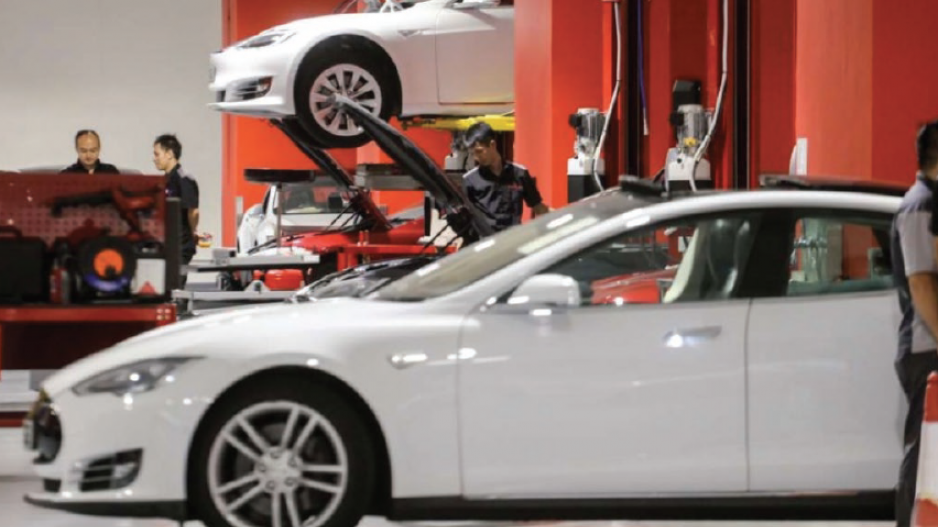Internet giant Tencent’s (Nasdaq:TCEHY) investment in Tesla (Nasdaq:TSLA) could help the U.S.-based electric car company gain a stronger foothold in China and even facilitate manufacturing of Tesla’s vehicles in the country, according to analysts.
A filing with the U.S. Securities and Exchange Commission on March 28 showed that Tencent bought a 5% stake in the California-based carmaker for about US$1.8 billion.
Tencent’s stake in Tesla could mean the latter would find it easier to realize its ambitions of manufacturing vehicles in China, thereby lowering the cost of selling Tesla vehicles to Chinese consumers and increasing its market share, according to analysts.
“Tencent is a massive company in China,” said Zhang Yu, managing director of Shanghai-based research company Automotive Foresight. “It could acquire companies with the licence to manufacture automobiles in China. Through a joint venture with Tencent, Tesla could produce their vehicles [in China].”
As Tesla doesn’t manufacture its cars on the mainland, its vehicles are levied with import taxes of at least 25%. The company has long had plans to set up a China manufacturing plant to lower costs, with Tesla chief executive Elon Musk tweeting in 2015 that such a factory could start operating in 2019.
Tesla considers China one of its most important markets, but the company has run into strong headwinds in the country, including a lack of demand for its luxury Model S electric sedan in 2015, a year after its China launch.
In a tweet on March 28, Musk said that “very few” of its more than 370,000 pre-orders for its mass-market Model 3 sedan were from China, although Tesla previously said that China was its second-largest market for Model 3 in terms of reservations.
Tencent also stands to benefit from its stake in the U.S. car company, with the Chinese company gaining access to Tesla’s technology, Zhang said.
“It’s a win-win situation,” he said. “Tencent has always wanted to enter the automobile industry. In fact, it previously invested in two car companies, NextEV and Future Mobility, but there hasn’t been much of a breakthrough yet.
“By becoming a stakeholder in Tesla, Tencent will immediately have access to an electric vehicle company with a measure of success.”
Kitty Fok, managing director of IDC China, said that Tencent could potentially incorporate its Internet services into Tesla vehicles in the future.
“Tencent has strong enter--
tainment and video systems, and even mapping services, which can be easily incorporated into automobile systems,” she said.
Although Tencent has declined to comment on any potential partnerships with Tesla, the company has a track record of co-operating with companies it has invested in, said Neil Wang, president of Frost & Sullivan Greater China.
“Tencent has big ambitions on AI [artificial intelligence] and driverless automobiles,” Wang said. “Co-operation with Tesla, one of the most aggressive carmakers in the world in terms of innovation, could be a long-term plan towards driverless cars.”
Tencent has not been shy about its AI ambitions. The company recently appointed Zhang Tong as its first AI lab head, and chief executive Pony Ma Huateng said during a recent earnings call that Tencent could “explore AI technology for driverless cars and online health care in the future.”
The Tencent-Tesla deal is the latest in a string of similar investments by Chinese tech companies. Search engine giant Baidu (Nasdaq:BIDU) and Internet conglomerate LeEco have poured money into developing driverless cars, while Alibaba (NYSE:BABA) has partnered with state-owned SAIC Motor to implement its car operating system YunOS into a sport utility vehicle.•
Read the original article on the South China Morning Post.



